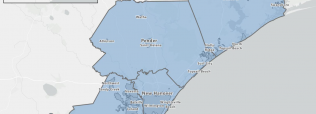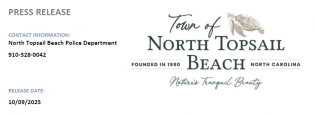Hurricane Preparedness
Before Hurricane Season
- Become familiar with your Evacuation Zone, the evacuation route, and shelter locations.
- Residents and Property Managers, have reentry pass ready. Click here for re-entry pass information..
- Plan routes to local shelters, register family members with special medical needs as required and make plans for your pets to be cared for.
- Inventory and photograph your home’s contents and put important papers and insurance policies in a safe place.
- Install and maintain storm shutters. A second option is to board up windows with 5/8” exterior grade or marine plywood, cut to fit and ready to install.
- Install a generator for emergencies.
- Gather needed supplies for at least three days. Keep in mind each person’s specific needs, including medication. Don’t forget the needs of pets.
- Because standard homeowners insurance doesn’t cover flooding, it’s important to review your insurance policy to ensure coverage for hurricane damage and flooding.
- Keep important documents in a safe place or create password-protected digital copies.
- Text JOIN NTBALERTS to 31002 to receive announcements and timely notifications including flood warnings by text and email.
Before the Storm
- Anchor or remove potential wind-borne objects.
- Trim or remove trees close enough to fall on the building.
- If you do not have hurricane shutters, close and board up all windows and doors with plywood.
- Turn the refrigerator and freezer to the coldest setting and keep them closed as much as possible so that food will last longer if the power goes out.
- Turn off propane tanks and unplug small appliances.
- Fill your car’s gas tank.
- Charge your cell phone.
- Restock your emergency preparedness kit. Include food and water sufficient for at least three days, medications, a flashlight, batteries, cash, and first aid supplies.
During/After the Storm
- Turn Around, Don’t Drown! Do not walk, swim, or drive through flood waters.
- Continue listening to a NOAA Weather Radio or the local news for the latest updates.
- Stay alert for extended rainfall and subsequent flooding even after the hurricane or tropical storm has ended.
- If you evacuated, return home only when officials say it is safe.
- Drive only if necessary and avoid flooded roads and washed-out bridges.
- Keep away from loose or dangling power lines and report them immediately to the power company.
- Stay out of any building that has water around it.
- Inspect your home for damage. Take pictures of damage, both of the building and its contents, for insurance purposes.
- Use flashlights in the dark. Do NOT use candles.
- Avoid drinking or preparing food with tap water until you are sure it’s not contaminated.
- Check refrigerated food for spoilage. If in doubt, throw it out.
- Wear protective clothing and be cautious when cleaning up to avoid injury.
- Watch animals closely and keep them under your direct control.
- Save phone calls for emergencies. Phone systems are often down or busy after a disaster. Use text messages or social media to communicate with family and friends.
- Have cash on hand as ATM machines will not be operable in the event of a power outage.
Online Resources
General Preparedness:
- Ready NC
- ONWASA Hurricane Education
- NOAA Extreme Weather Information Sheet
- National Flood Insurance Program
- Onslow Co. Shelter Locations and Information
- Build your Emergency Supply Kit
Rebuilding:
- FEMA help for individuals
- NC DEQ Guidance for sand pushes, beach nourishment, walkways, sandbags, etc.
- The Dune Guide
Post-Florence Data:
- USGS Flood Event Viewer
- Drone Footage of the Shoreline (courtesy of Surf City)
- Drone Footage of Damage Assessment (courtesy of Onslow County)
- Drone Footage from Street-level
- NOAA Imagery






